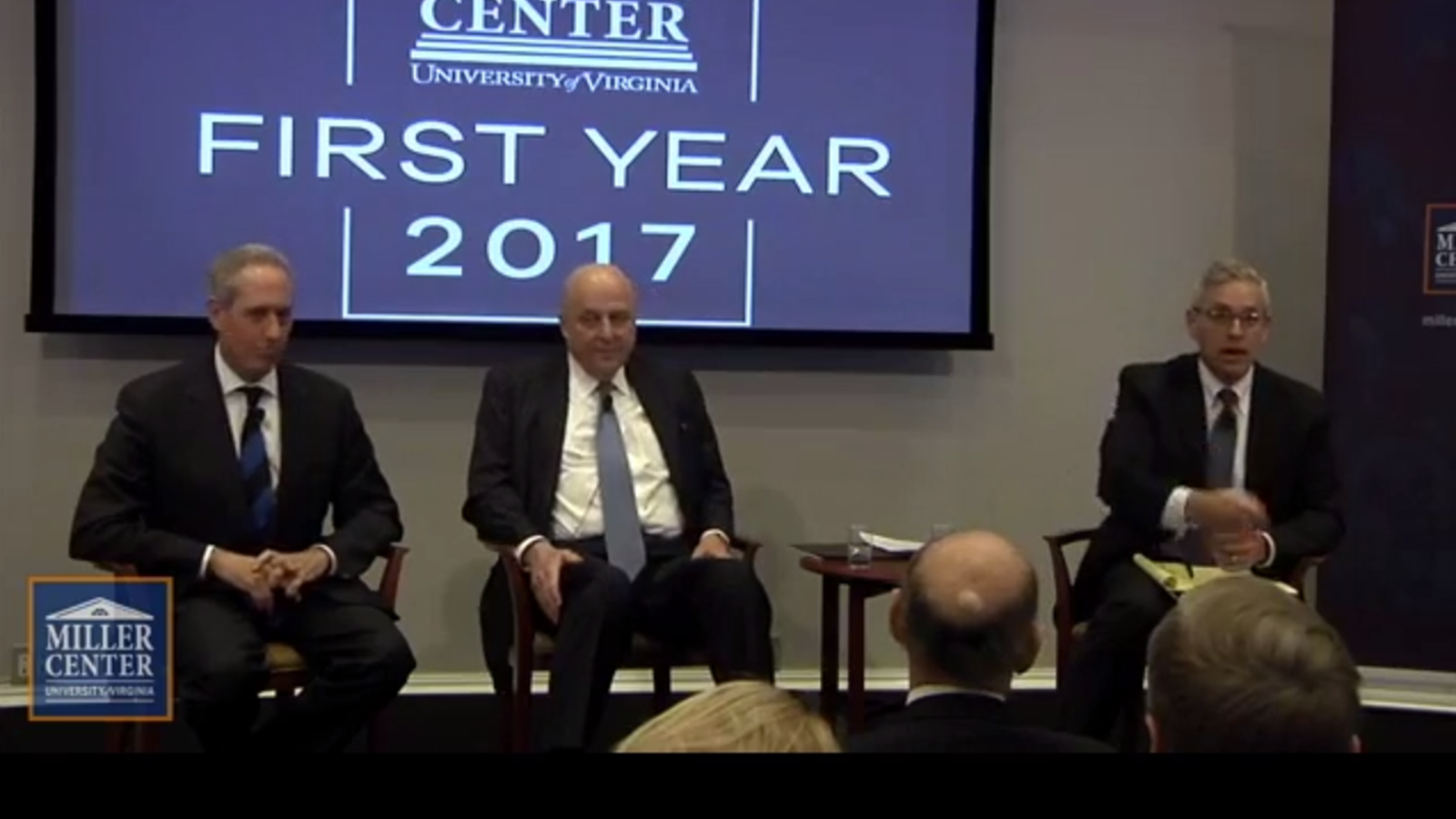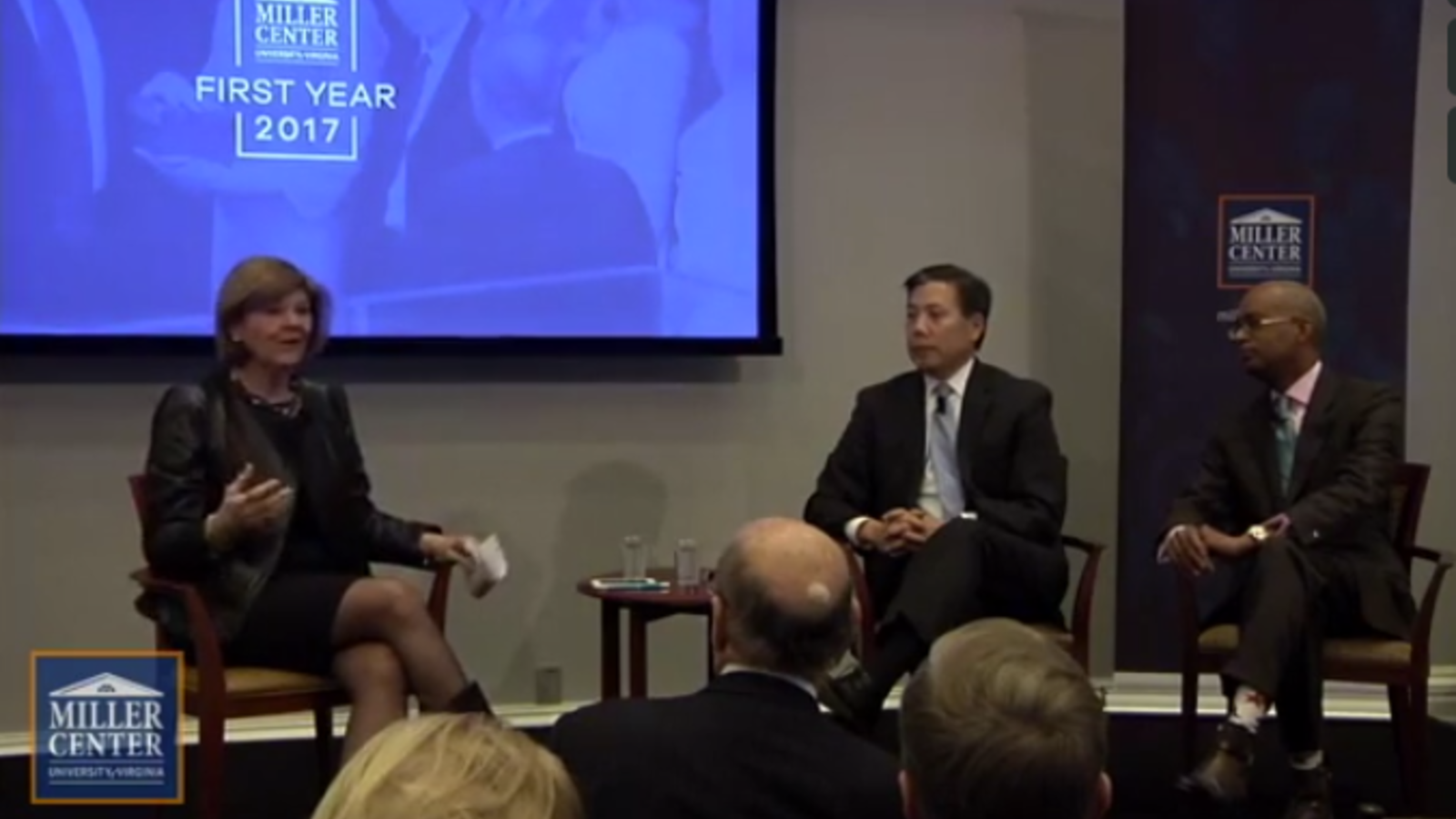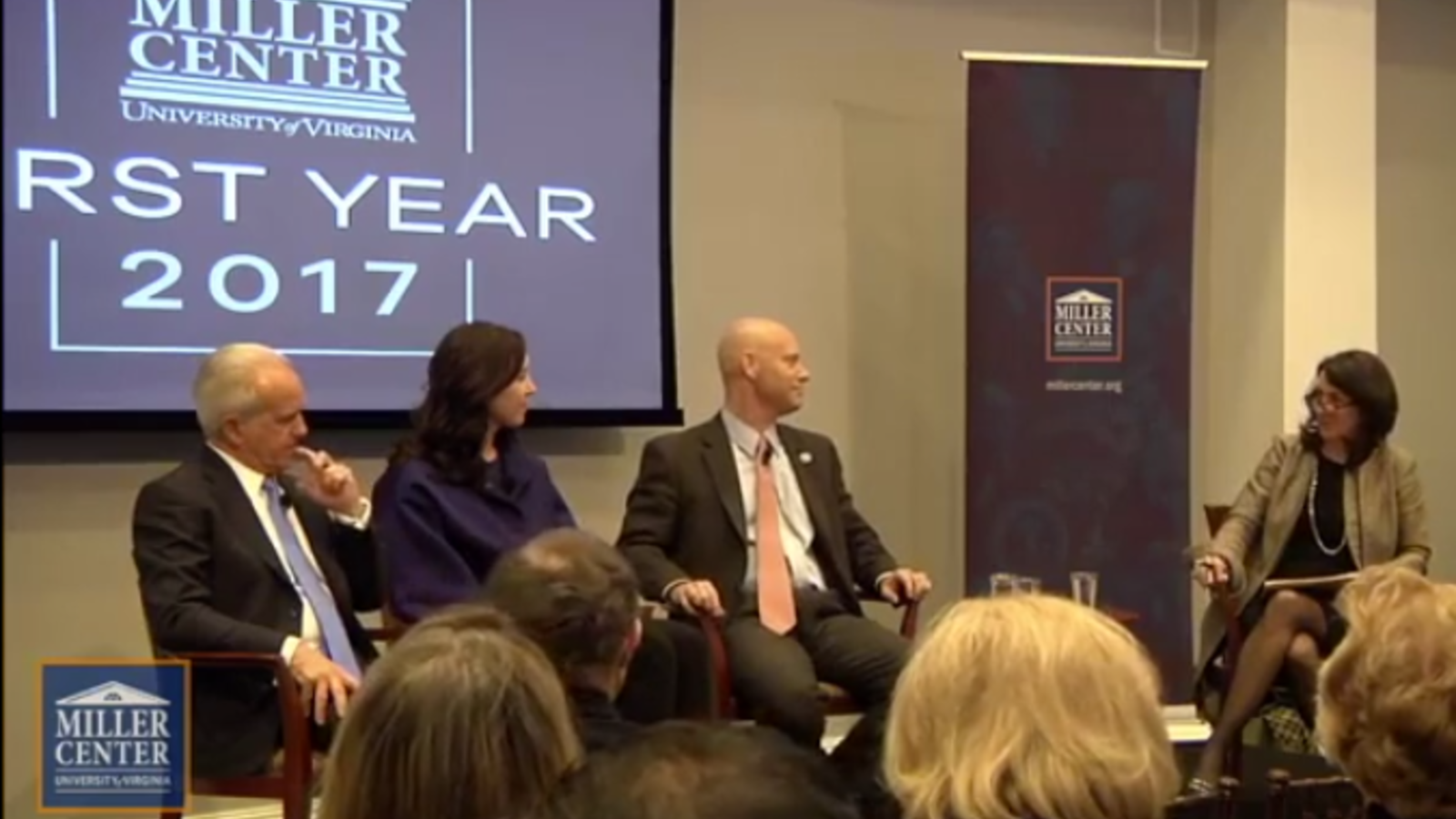Donald Trump at one year
White House veterans and Miller Center scholars evaluate the 45th president's first 365 days
President Donald Trump at One Year
January 18, 2018
Decatur House, Washington DC
Participants:
Michael Froman, US Trade Representative, Barack Obama
John Negroponte, Deputy Secretary of State, George W. Bush
William Hitchcock, UVA professor of history and Miller Center faculty fellow (moderator)
•
Ron Christie, Special Assistant to the President, George W. Bush
Chris Lu, Deputy Secretary of Labor, Barack Obama
Ann Compton, former White House correspondent for ABC News (moderator)
•
Nicholas Calio, Assistant to the President for Legislative Affairs, George W. Bush
Katie Beirne Fallon, Director of Legislative Affairs, Barack Obama
Marc Short, Director of Legislative Affairs, Donald Trump
Mary Kate Cary, Speechwriter, George W. Bush; Senior Fellow, Miller Center (moderator)
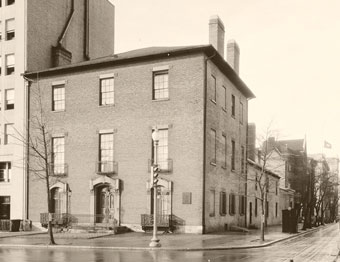
Assessing Trump’s First Year
It’s hard to think of a more fitting time and place to bring to a close the Miller Center’s First Year Project than a three-panel discussion two days shy of the end of President Donald Trump’s first year in office—at the Decatur House, home to the White House Historical Association, located directly across the street from the Executive Mansion itself.
On January 18, 2018, Miller Center presidential scholars and veteran White House practitioners came together to animate the work of our First Year Project through discussions on national security, domestic policy, management of the federal government, White House communications, and legislative affairs.
Starting in October 2015, the Miller Center took the concept of a president’s first year, with all of its unique challenges and pressures, and turned it into a multiyear research project that included more than two dozen public events across the country, essays from 14 former White House officials—both Republicans and Democrats—and a hardcover compilation of those essays.
Perhaps President Lyndon B. Johnson most successfully crystallized the importance of a president’s first year—particularly in working with the Congress. “It doesn’t matter what kind of majority you come in with,” he said. “You’ve got just one year when they treat you right and before they start worrying about themselves.”
Johnson was referring to Congress’ shifting focus to midterm primaries and general elections, which begin in the second year of a new president’s term. As Trump’s first year was about to turn toward his second, we reviewed how well he used his window of opportunity with Congress.
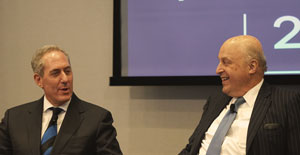
National Security: A Year of Change
Our first panel included two of some of the country’s most experienced practitioners in foreign policy and national security: George W. Bush’s Deputy Secretary of State John Negroponte and Barack Obama’s US Trade Representative Michael Froman, who is also the Miller Center’s James R. Schlesinger Distinguished Professor.
Disruption or continuity?
Donald Trump ran as a disruptor during the election of 2016. He wanted change. He said US national security and foreign policies have not been successful. He didn’t like Obama’s Iran nuclear deal and said we’re losing the global economic race with China. He ran on the idea of changing the status quo. So has his approach been about just disruption? Or has he also offered some continuity?
“There’s more continuity than Trump himself would have expected,” said Negroponte. “He was going to declare China a currency manipulator, but that didn’t happen. He certified the waiver to the sanctions against Iran [despite saying it was a bad deal]. He said that Korea and Japan should get nukes and fend for themselves, but then he went to NATO and reaffirmed Article 5—an attack on one is an attack on all.” His talk has been one thing; his actions have been another.
Froman agrees that President Trump’s continuity has been surprising, but went on to explain there are still problems. “There’s been an abdication of American leadership,” Froman said. “The World Trade Organization, the G8, the G20—without US leadership, very little gets done. ‘America first’ doesn’t mean ‘America alone.’ But that’s not completely up to us. Not doing ‘America alone’ depends on other [countries] joining us. And so far, we’ve been lonely. That is quite disruptive.”
Big ideas
The most successful first years are often driven by a big idea. For instance, President Reagan had a clear plan: He wanted to win the Cold War, and he drove that message through his advisors and down into the bureaucracy. In the first year of the Trump administration, moderator Will Hitchcock asked, what is the big idea? What is the Trump doctrine?
“Having been in the Reagan administration, I don’t think it looked so organized at the beginning,” said Negroponte. But like Reagan, Trump’s approach has been peace through strength. “Trump would say he positioned the US better to deal with the rest of the world.”
To Froman, the big idea seems to be undoing the accomplishments of the previous president. “It has only been one year. It’s still early. There is time. He could say, ‘This is what America first means as a foreign strategy.’ I don’t think we’ve seen that yet. So far, it’s been more about disrupting and undoing than doing.”
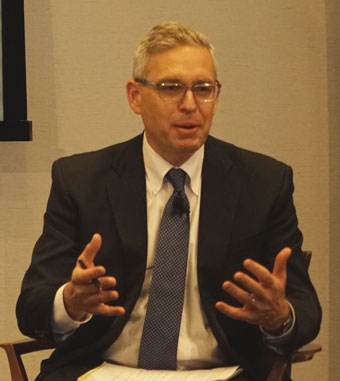
Trump on the global economy
The panel agreed that Trump’s talk has been very different from his follow-through. “The protectionist rhetoric has been greater than the action,” said Froman. “There are a number of different trade actions that could trigger a trade war. But he hasn’t done anything yet in that regard. The fact that he has delivered on tax cuts and regulatory relief—the business community sees that as a positive outcome.”
“Having been ambassador to Mexico, I’m particularly worried,” said Negroponte. “It was a campaign commitment. He growls about NAFTA constantly, but people said, ‘Look, this will hurt our interests.’ Is it enough to change his mind permanently? I don’t know.”
US reputation around the globe. There’s a way of looking at the first year of this administration as President Trump redefining our role on the international stage. “He’s telling the rest of the world that there’s a new sheriff in town,” said Froman. “And that the way things have worked is now up for question. The rest of the world wants the US to show leadership. They want a way forward with this administration. I’d give the advice, ‘Now that you’ve conditioned the rest of the world, if you could pivot and show leadership, you could probably get a lot done.’ So far we haven’t seen it.”
Respect for civil service
Trump has slashed the State Department budget and left ambassadorships unfilled. How will this strategy play out?
“In the Reagan administration,” Negroponte said, “[US Ambassador to the UN] Jeane Kirkpatrick turned to me and said, ‘I don’t see how the administration can trust you and others who were working for the previous administration.’ It flies in the face of political tradition to be so foolhardy that you can dispense with the amount of experience in this town. You can carry that thought too far.… I’m hoping they will learn, but what they’re doing right now, I consider very deleterious to the department.… We’ll pay for it.”
While working in the Obama administration, Froman managed the office of the US Trade Representative. “As I was leaving a year or so ago,” he said, “I reminded the staff that they weren’t particularly happy with the Obama trade policy when we came in either. But they are a professional staff. They want to execute what their political leaders are asking them to do. They are mission oriented. They’re not in those jobs for the money or the glory.”
A curve like no other
“One of the thoughts I share with [my] students is that presidents, like anyone else, have learning curves,” said Negroponte. “Someone with no previous government experience is going to learn a lot in the first year. Very often you come across the mentality that no one in this town knows what they’re doing. And that anyone who’s been here isn’t doing anything right. I don’t think Trump is learning as fast as he’d have hoped. But it’s a dynamic process.”
A bright spot in Asia
Both Negroponte and Froman expressed positive opinions of Trump’s foreign policy stance in Asia. “He’s put increased focus on the role of China in the global economy and the challenges it creates,” said Froman. “Elevating that issue and bringing focus—I think that’s a step forward.”
Negroponte pointed to Trump’s two-week visit to Asia and his strong relationship with Prime Minister Shinzō Abe of Japan. “I think he does appreciate the importance of that part of the world,” he said.
There’s more continuity than Trump himself would have expected
Personality heard round the world
“I talk about it as the ‘Twitter Trump’ versus the ‘Teleprompter Trump,’” Negroponte said. “But I don’t see any significant improvement in his tendency to be impulsive. I wish he was … but I’ve gotten used to it.”
Froman said that Trump’s impulsivity could take us from being the most indispensable nation to being irrelevant. His contacts overseas are telling him that they will wait three years—or what they hope will be just three years—for the US to revert back to the norm.
On the UN
Trump once called the UN “a waste of time and money.” But Negroponte said that this kind of talk is just that—all talk: “It’s more bark than bite. The [UN] budget cuts aren’t quite as drastic as some might have you believe. And they’ve been done in harmony with the Secretary-General.... I think Ambassador [Nikki] Haley has done a good job.… I don’t think we’ll pull the rug out from under the UN. I think we’ll continue to support it. When you think about it, we give $2 to $3 billion to international peacekeeping efforts, mostly in Africa. That means we pay 25 cents on the dollar—that’s a good deal.”
Bringing Order to the Disorder of a New Administration
Thirty-three hours out from the recent government shutdown proved to be an interesting backdrop against which to discuss successful management of the federal government. Our second panel, moderated by veteran journalist Ann Compton, included Obama administration Deputy Secretary of Labor Chris Lu and George W. Bush’s Special Assistant to the President Ron Christie.
Crucial connection with Congress
Both Lu and Christie agreed that a president’s greatest asset is an ally in the West Wing who can successfully liaise with Congress. “We found that the vice president [Dick Cheney] was an experienced legislator, and [Congress] trusted him,” said Christie. “It was like speed dating: [Cheney] went from table to table talking to senators. In his first 100 days, [President Bush] really leaned on the vice president to take the temperature on the Hill.… [Cheney] had an office right off the House floor. That hadn’t happened before. We used that to our advantage.… He used his perch as president of the US Senate to let us roam the halls of the Senate, as well as the West Wing.”
In the Obama administration, that congressional conduit was Chief of Staff Rahm Emanuel. “We actually got a cap-and-trade bill through the House in the summer of 2009,” said Lu. “In hindsight, that probably wasn’t the best decision. The Blue Dog Democrats took a hard vote on energy. If we could have done it differently, we’d have done health care first. So much of our agenda in those first two years was a legislative agenda. And no one better than Rahm Emanuel for that.… [He] had led the Democratic Congressional Committee and had gotten many of these people reelected. He knew the districts in detail, and he knew what we needed to do to get those votes.”
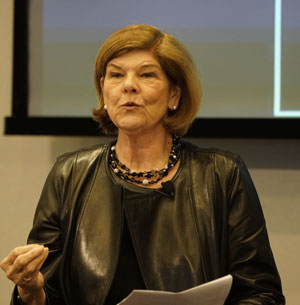
Flexibility as a job requirement
An incoming White House can do all sorts of planning and preparation, but natural and man-made disasters often derail priorities. “On Election Day [2008], all of our plans had to shift to the economy,” said Lu. “The jobs report comes out the first Friday every month. On February 6, 2009, the US economy lost 800,000 jobs in one month. We were facing the precipice of the next Great Depression. We passed the stimulus package, and then shored up the auto industry, and then Dodd-Frank to prevent the next great recession. I learned that you can plan all you want, but you have to be nimble.”
Personal relationships are paramount
With President Bush’s signature No Child Left Behind legislation, he knew he couldn’t pass it without Democrats—and he needed to bring them onboard. “What did he do?” said Christie. “He cultivated [Democratic Senator] Ted Kennedy.… He renamed the Justice Department building after [Ted’s brother] Robert Francis Kennedy. Then he spent a lot of time with the Kennedy family. He invited them all to the White House movie theater [to watch the Cuban Missile Crisis film Thirteen Days]. They all came, and they all loved it. President Bush used a personal touch to advance one of his most significant pieces of legislation.”
Obama too cultivated relationships—even had a particular fondness for Speaker of the House John Boehner. “One of the reasons we couldn’t get health care done until March of 2009 was because we wanted bipartisan support,” said Lu. “If you need the other side, you’ll find a way to work with them. Obama’s reputation was pretty standoffish—he got dinged for not playing golf with [members of Congress]. But that’s not what Obama wanted to do—that’s what Joe Biden did.”
Tribalism meets social media
Does this hyperpolarized political climate feel that much more polarized than in the past? “Part of the blame should be on Trump and his use of Twitter,” said Lu. “But the last three administrations have been [extremely] polarized—each more than the last. [I put the] blame on the larger political ecosystem.”
For Christie too Twitter is a problem, given the importance—and finite nature—of a president’s time. “I think about how much time this president spends on Twitter,” said Christie. “We didn’t have Twitter in the Bush administration. [Chief of Staff] Andy Card used to say to us, ‘If you want to see the president, you won’t get to see the president. But if you need to see the president, you’ll see the president.’” A president’s calendar must be managed carefully.
Embrace the media?
“A lot of people said [Cheney] didn’t like the press, but he actually had very good relationships with the press,” said Christie, explaining that it’s better to embrace the media than to fight it. During his time working with Cheney, the vice president invited Darrell Hammond to the White House Christmas party, even though the actor frequently mocked Cheney on Saturday Night Live. “Mary Matalin [who hosted politically minded television and radio shows] was also the counselor to the vice president. We tried to use that to our advantage and to plant seeds about more favorable stories.”
Obama also was criticized.
“People did complain when Obama stated that he didn’t do traditional media—we were the first to use social media,” Lu said. “[People] could watch the State of the Union on whitehouse.gov and would see all the graphics we wanted them to see. Any time you work in the White House, you think you’re under siege. When the government works well, it’s just not a story.”
Staffing up the bureaucracy.
“Where this president has stumbled is on personnel,” said Lu. “He doesn’t have people in place. You can’t turn the direction of an ocean liner without a lot of captains at the front of the boat. Not filling those positions has been problematic…. In terms of trying to downsize government, they’ve been successful…. All candidates like to run against Washington. But you have to understand when you get in, the federal government works—not all the time, but overall it does work.”
If you need the other side, you’ll find a way to work with them.
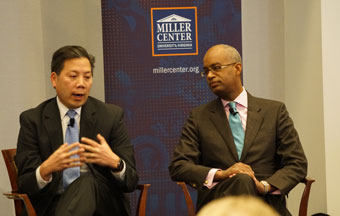
The importance of a good transition team.
“I was part of the Obama transition—a good, thoughtful group of people asking the right questions,” said Lu, who is also on Virginia Governor Ralph Northam’s transition committee. “Trump’s transition didn’t even expect to win. After [New Jersey Governor] Chris Christie was fired [as the head of it], they had to start again. Assembling a federal government in 70-some days is an enormous task.”
Christie also emphasized the efficiency of Bush’s team, especially important given that the winner of the 2000 election was decided by the Supreme Court. “Dick Cheney was running the transition office out of a building in McLean, [Virginia], so that if we won, we’d have a leg up,” he said. “The second the Supreme Court said we won, we moved into the official building used for presidential transitions.”
Respect the process.
“I think Trump is smart, but no matter how smart you are, you don’t know a thing,” said Lu. “Trump tweeted about establishing a cybercrimes commission in conjunction with Russia. Then [Treasury Secretary Steven] Mnuchin had to defend it the next morning. By that evening, Trump said never mind. That’s not a policy process…. You have to respect the process.”
In fact, Christie said, process is the only way to drain the swamp—to make sure everyone is on the same page. “We had meetings every week to keep us on track. In the message meeting, we talked about what we’re going to do next week and for the next three months.… Everyone knew what the message was for this week, next week. And for President Bush, he knew his messaging points too.”
The future of presidential debates.
Are they destined to be the roller coaster ride of debates in 2016? “I was [Republican candidate John] Kasich’s debate coach, and I can tell you that being a debate coach in this cycle was a tsunami,” said Christie. “You get [the candidates] used to what will happen in that room, how high the podium is, what the temperature is. But you throw that out the window with Donald Trump. We went in expecting a debate, but what we got was a reality show.”
Comforter in chief.
“The president plays many roles,” said Lu. “One of the critical roles is as comforter in chief. We have not seen this president play that. He didn’t play it well in Charlottesville. The most emotional I saw President Obama was after [the massacre at] Sandy Hook. That is when a president has to rise above divisions and say, ‘We’re all Americans.’ How this president does in a similar situation will be very telling.”
The 9/11 terror attack was during Christie’s first year with Bush 43. “We had to find a way to get America going again,” he said. “There’s no script for that. That’s where you see the mark of a president.”
Legislative Agenda: Establishing a Process that Works
Trump’s Legislative Affairs Director Marc Short was able to join us on the eve of the government shutdown, providing a valuable window into the current administration. He was joined by moderator and former George H. W. Bush speechwriter Mary Kate Cary, as well as Obama Legislative Affairs Director Katie Beirne Fallon and George W. Bush’s Assistant to the President for Legislative Affairs Nicholas Calio.
What comes next?
“A government funding bill that won’t be just a continuing resolution,” Short said. “Budget caps and DACA will take us though February. There won’t be enough Republicans to pass infrastructure. When we go from 52 to 51 [Republicans in the Senate], it’s significant. Add to that several ailments, and the reality is that it’s equal parity in the Senate…. Hopefully we’ll do things that will pass in a bipartisan nature.”
Fallon had some advice for Short (and his administration): “I wonder if there isn’t an opportunity with President Trump to break from the base and do meaningful immigration reform. I wonder if this is not an art-of-the-deal moment.”
To earmark or not to earmark? Calio blamed the gridlock on legislative rule changes. “I believe in the need for getting Democratic buy-in. You can’t get anything through the Senate without bipartisanship,” he said. “There hasn’t been a lot of major legislation in Congress since earmarks ended…. If they put their minds to it, they can get something done.”
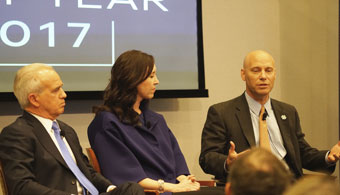
Fallon agrees with Calio
“My first day on the job, I directed our legislative staff to pull tear sheets on what the Republicans [in Congress] want and need. They all came back with one or two sentences. But then we realized it’s more about public optics than actual trades. We need to bring back some of those traditional tools that we can leverage to get legislation passed.”
Short, on the other hand, had a different take. “I think earmarks created a lot of bad incentives,” he said. “There’s a positive in helping get legislation done, but there are also negative consequences that come with it too. I think the filibuster has an important place, but it’s been abused. I think senators got lazy and instead created the cloture vote to delay votes. To require 60 votes to get to a 51-vote margin—that’s not how it’s supposed to work.”
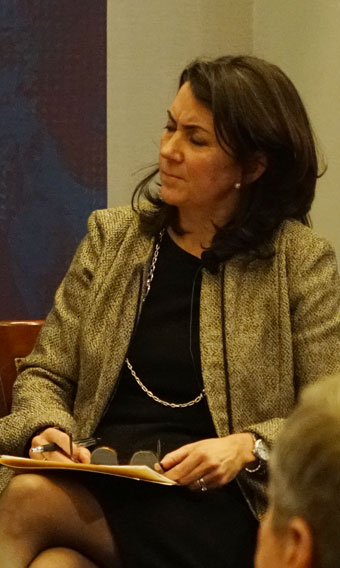
First year prognosis
“The focus has been on tax cuts, but there were accomplishments throughout the year,” said Short. “There were 15 bills signed under the Congressional Review Act, whereas previously only one bill had ever been signed under that law. Additionally, we confirmed more circuit judges in a year than any other administration. In the midst of all that, we confirmed a Supreme Court justice. So there are a lot of things that were happening that were being overshadowed by the health care debate…. There are always missed opportunities. For us, it was health care. Republicans had campaigned for six years on repealing and replacing. So missing that opportunity was a disappointment for all of us.”
Calio would have started with something that could have had more bipartisan support. “I would have come out of the box with infrastructure,” he said. “Someone on an earlier panel asked about reaching across the aisle, if it’s a lost art. I think it is. Yes, you can get things done with only Republican votes, but then you can’t get anything through the Senate. And frustration grows among the public and the voters.”
Problems with the system
“What’s missing in this conversation is the complete dysfunction of Congress,” said Short. “Congress should have until September 30 to complete the fiscal year. Yes, we don’t want a shutdown. We want the vote to succeed tonight. But there’s a complete breakdown of the appropriations process.”
I do think most State of the Unions are false alarms.
Tackling immigration
“I think an immigration deal would actually benefit the Republican Party in the long term,” said Calio. “There’s too much made of the fact that an election is coming up. If they put their mind to it, it can get done.”
The changing media landscape
Calio pointed out how quickly technology has changed how a White House controls its messaging. During Bush 41, the news cycle started at 6 p.m.; by Bush 43, there was cable news 24-7; and with Trump, news is being disseminated via Twitter direct from the source, instantaneously.
Establishing a messaging strategy. “People say we should do away with the daily press conference because [the president] starts it at 6 a.m. when he tweets,” said Short. “Every once in a while [a tweet] goes awry, but 9 out of 10 times [they are fine]. We have to be able to react to it. Legislators now call us and ask us if Trump can tweet [something in particular].… So in an unanticipated way, it’s become a tool for our office.”
In the Obama administration, there was a more centralized messaging strategy. “We tried to use communications to shape our legislative policy agenda,” said Fallon. “We got better over time. This administration has a different approach. I want to … ban Twitter. I think social media makes it too easy for people to create their own understanding of the reality around them. It’s a vicious cycle.”
State of the State of the Union
Short explained that the president will make his case for the need for border security and infrastructure at the State of the Union on January 30.
“I’d like to see one State of the Union where someone actually took stock of the state of the union and how they could correct it, in 30 minutes,” said Calio, who prompted a discussion about producing a written document instead of a speech, which was the case from Jefferson’s first State of the Union in 1801 until Taft’s final one in 1912. “I do think most State of the Unions are false alarms. They go on and on and on.”
Trump as outsider
“The Trump administration is like no other, for lots of reasons,” said Short, who showed off the dual IDs that let him into Capitol Hill and the White House. Unlike in many previous administrations, he said, the president came in without existing relationships—but he has managed to build them during his first year. “There’s no doubt that when the vice president had his discussion with nominee [Trump], Mike asked, ‘What would you envision the world being?’ Mr. Trump said, ‘I will expect you to be our point person on Capitol Hill.’”
Does experience matter?
“[A president has] to wake up every morning wanting to put everything aside for the good of the country,” said Fallon. “’It’s less about experience and more about how you’re oriented as a person. President Obama brought very little of his Senate experience to bear in the Oval Office and more of his value set and what it means to be American. There’s going to be a lot of debate about if a CEO should be president, or a celebrity. We shouldn’t get caught in that rabbit hole.”
